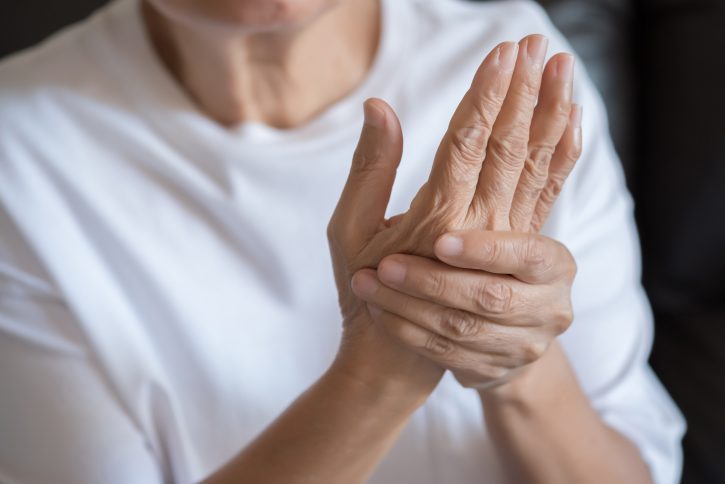
with Sheryl Mascarenhas, MD
Fairfield Healthcare Professionals Rheumatology
740-689-6408
The field of rheumatology has evolved significantly over the past several decades. With the expansion of complimentary fields – like orthopedics, sports medicine and physical medicine and rehabilitation – providers and researchers have been able to hone their focus on the treatment of autoimmune and inflammatory conditions.
“The roots of the specialty are in joint care, so there are some holdovers that aren’t necessarily autoimmune in nature,” said rheumatologist Sheryl Mascarenhas, MD. “We still care for patients with gout, bursitis and osteoarthritis, but for many of us, our focus is going to be on managing autoimmune disorders that affect the musculoskeletal system.”
Condition Spotlight: Rheumatoid Arthritis
According to Dr. Mascarenhas, rheumatoid is one of the most common forms of inflammatory arthritis treated in her practice. The condition tends to affect women more than men, with age of diagnosis occurring as early as the 20s or 30s and a spike in incidence among post-menopausal women.
In many cases, inflammatory arthritis presents differently than joint diseases associated with wear and tear. When differentiating between osteo- and autoimmune arthritis, Dr. Mascarenhas considers the following to be red flag symptoms:
- Stiffness, pain and notable swelling of the joints (caused by the accumulation of synovial fluid)
- Pain, stiffness and swelling that is severe or prolonged in the morning (lasting longer than 30 minutes) before improving throughout the day
- Pain, stiffness and swelling that worsens rather than improves with rest
Diagnosis
Diagnosing autoimmune joint disease is a complex process. The path begins first and foremost with a physical exam and thorough history, typically followed by blood work. “The majority of people with rheumatoid arthritis will have positive markers in their blood,” Dr. Mascarenhas said. “Unfortunately, somewhere between a third and quarter of patients may not. That’s where imaging can be useful.”
Because X-rays will only reveal damage to the bone, Dr. Mascarenhas most commonly uses ultrasound or MRI to aid in the early diagnosis of these elusive conditions. These techniques allow for a clearer view of inflammation in the joint capsule and synovium. If synovitis is observed and enough fluid is present, guided aspirates can help complete the puzzle.
Treatment
“Treatment is very different now than it would have been 40 years ago,” Dr. Mascarenhas said. “Now, there are a lot of options to better control the disease, to prevent that damage and deformity that so many associate with rheumatoid arthritis, and to really improve overall symptoms.”
Most patients will start on a traditional disease-modifying antirheumatic drug (DMARD), such as methotrexate or hydroxychloroquine. If symptoms or disease progression is still uncontrolled, biologic DMARDs can be used to block different targets of the immune system.
“These biologics really work as snipers in the immune system. Instead of globally lowering the immune response, these drugs can address a more specific cause of the inflammation,” Dr. Mascarenhas said.
Dr. Mascarenhas is currently accepting new patients. Talk to your provider about referral to Fairfield Healthcare Professionals Rheumatology, or call 740-689-6408 for more information.

